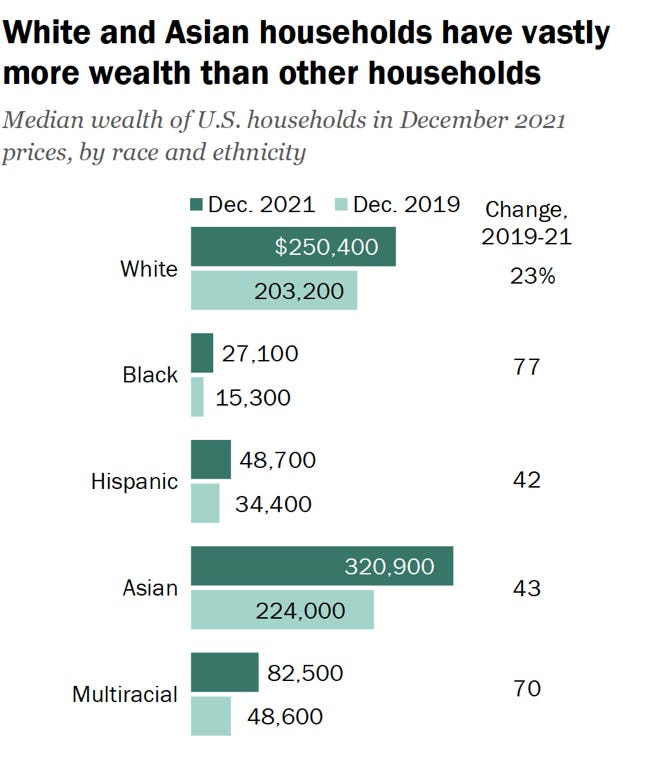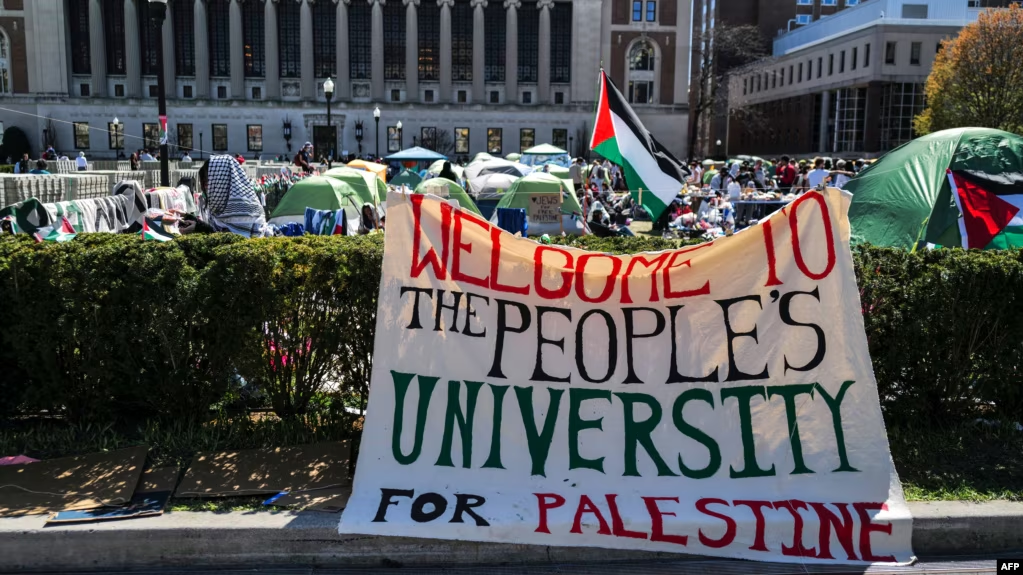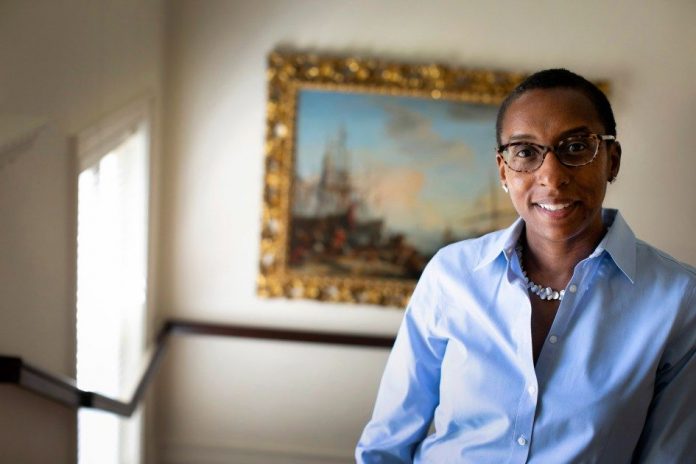The current one is outraging too many people and helping Trump
Here’s the tricky thing about social justice, by whatever acronym it be known: achieving it fairly, which I think most people want, defies facile politics. What some axe-wielding partisans see as matters of principle may more usefully be viewed as questions of degree.
The issue is on fire after the resignation of Harvard president Claudine Gay, in the wake of her stumbles on combating antisemitism (only when it “crosses into conduct,” she told Congress) and accusations of plagiarism. Some believe the African-American academic was hounded out by racists on a witch hunt, while others are convinced that her incompetence illustrates why diversity hires will destroy civilization.
I’d like to argue for a more balanced approach. It is not “the mushy middle,” as one diversity hire of a senior editor once told me in acid tones, but rather the golden mean.
To oppose diversity efforts altogether – to simply declare that “DEIA” must be killed, as some now do – is to ignore the inadmissible reality of Americans of African descent, among other things. The huge income and wealth gaps between them and the others are unacceptably high a century and a half after the abolition of slavery (as the incredible below chart from Pew shows, whites have tenfold the wealth); the ghettoization is corrosive to society; the crime and incarceration rates are, despite improvements, still hugely disproportional); the broken family incidence is unhealthy (about 70% of black kids born out of wedlock).

Unless one believes there is something natural about this disaster – which would indeed be a racist view – then it should be obvious that corrective measures are needed. And there is nothing wrong per se with applying corrective measures to a free market; the almost universally accepted concept of progressive taxation, by which the wealthier are taxed at higher marginal rates, is a form of exactly that.
But it is also wrong to ignore the corrosive nature of affirmative action that goes to the extreme advocated by the far left in the United States, where it has ballooned into a veritable cult that not only aims to fix the problems of African-Americans but has fostered obsessions about the marginalized and the oppressors and taken concerns about self-identification, especially regarding gender, to absurd extremes.
One example is the nonsensical narrative that basically says Jews are “white” and therefore “the oppressor,” which from a certain mindless perspective excuses and even justifies all crimes against them. The apparent prevalence of this thinking on elite US campuses is how Congress came to be discussing antisemitism — and in turn why the antisemitism question rapidly ballooned into a wider discourse on so-called wokeness.
A key aspect of wokeness, and to my mind the most compelling element thereof, is the campaign for diversity of race and gender.
The old term for it was “affirmative action,” which has long been controversial, attaching to the toxic concept of “quotas.” Those uncomfortable with affirmative action cite the classic liberal view that people should be treated as individuals and judged on their own merit alone, not on unchosen affiliations and tribal attachments they may hardly even desire.
Though activists deny it, it’s hard to see how race-based hiring does not contradict the famous words of equal rights icon Martin Luther King, who yearned (at 3:13 in the must-see speech below) for a day when his descendants “will be not be judged by the color of their skin but by the content of their character.” I conclude that even if King would have supported diversity efforts it would have only been as a limited and temporary transition phase to a better future of which he dreamed.
Moreover, it is dishonest to dismiss concerns that quotas and diversity drives come at the expense of merit, undermining the tasks at hand. Introducing any filter at all beyond the ability to perform these tasks will always affect the other variables, including merit – it’s mathematical. A person will rarely be both the tallest and the smartest at the same time; introducing multiple criteria will yield perhaps an optimum, but almost never a maximum of either.
This type of illogic leads to the extremist notion that the very concept of merit is racist. It is short distance from that to a post-truth worldview based on “lived experience” (from the left) and “alternative facts” (from the right). If these perversions prevail we will end up with a very silly society that is utterly unprepared for hard choices that lie ahead.
There are better ways to approach all this.
Merit exists, obviously, and it is how you cure cancer, win Olympic gold medals or create great art. But it might be OK to measure if differently, or even sacrifice it for a time. One could argue that merit has rarely been the sole determinant anyway – certainly not when women were denied almost all opportunities a mere century ago. Indeed, a 2019 study showing almost half of Harvard’s white undergrads were there because of legacy, athletics or some other non-academic consideration well displayed how porous the meritocracy argument can be.
Another argument is that potential merit can be more difficult to prove for people who have never had the opportunity to develop or display that potential – and there are ways to identify it and make up for lost time on the fly. That future potential is actually more important than past achievement on practical grounds should be clear.
Yet a third is that while a given business unit might suffer, the overall benefit to society is enhanced, and therefore it must be incentivized and encouraged anyway.
We find this latter idea not only in the work of modern thinkers who addressed social justice issues, like John Rawls and Ronald Dworkin (who argued that affirmative action is necessary to overcome the legacy of past discrimination), but even in the classics: Aristotle’s concept of distributive justice, which focuses on fairness in the distribution of goods and resources; John Stuart Mill’s “utilitarian philosophy” arguing that all of society benefits from ensuring the greatest happiness for the greatest number of people.
I am inclined to accept all of this, and so I upset some libertarian friends when I defended affirmative action in a TV debate a few months ago (below). “Color blindness and individualism are excellent principles, but reality requires a bit more nuance,” I argued.
But there is nuance, and there is wokeness. In recent years, we have gone beyond what most people over 20 would consider reasonable. That’s why there seems to be a slight majority opposing affirmative action. That is the subtext of the furor over Gay’s resignation – it feeds the sense of many that diversity has gone berserk.
Is that sense unfair? Well, I have literally seen an extremely senior editorial position go to a person who regularly confused the words “idea” and “ideal” – purely on the basis of diversity. I have seen senior appointments made with the unofficial but rock-solid understanding that the appointee needed to come with a particular chromosome attached, almost no matter what.
In the final analysis, the way American society has tried to correct the past injustices is both strangely insufficient (for the gaps remain huge) and way more than just unpleasant. Every time a straight white man has to admit to those three characteristics on the weirdly intrusive modern American job applications, suspecting a ploy to flag their candidacy on and cast upon it disfavor, something dies inside every old-school liberal. Many straight white men feel actively shunned – and the openness of it is bizarre. That this demographic still holding on to majority status in CEO suites overall, via legacy positions, cannot disguise the dynamic in which they are cast as the beheaded aristocrat.
So even though I favor a measured form of encouraging diversity, I hope it will be temporary. There is a much better long-term form of levelling the playing field: actually levelling it by investing massively in schools in underprivileged areas, as well as in every kind of program, public or private or mixed, that aims to undo the unfair and damaging legacy of past injustice. Some will say we do this already, and point to failures of education investments in the District of Columbia, or whevever; they’re fooling themselves. We do not do this at the level of the Marshall Plan or with the drive and genius we displayed in order to put a man on the moon. We do it unseriously and inefficiently.
That I support some corrective action but think we have gone astray, that I write about it, all exposes me to the most horrible calumnies and invective from the far left and might even make me in some circles unemployable (or would, if age had not done the trick already). Which brings us to the cancellations abomination.
“People are terrified of saying anything against wokeness out loud,” said a genuine liberal who has the traumatic misfortune of being a senior executive in Silicon Valley. My friend fidgeted and whispered as he said it, glancing over his shoulder with deep unease, thousands of miles from colleagues. One can be recorded.
Is he paranoid? Perhaps a little, but not by much. Take that understanding, add to it the idea that children should be encouraged to explore gender-altering surgery, insist that everything is racist, and sprinkle on top forgiveness to thieves as long as they come from marginalized groups, and you get otherwise sane people voting for Donald Trump.
That may be the most insidious aspect of the whole catastrophe: it is undermining the true cause of social justice by helping the Republicans, a party that in its current mutation seems actively dedicated to injustice. It drives people not only to support Trump but to descend into a corrosive counter-grievance. Almost every otherwise decent person I have queried who considers voting for the right cites the culture wars as the reason. Are they just being duped by Republican inventions? I do not think so.
That is basically the reason why we ended up with a Supreme Court that in the middle of last year declared unlawful affirmative action in college admissions. How’s that working out for you, progressives?
I live abroad, watching this from a distance and observing how outsiders see what’s happening in America. They think America has lost its mind – caught between angry white-grievance hatemongers who would support Trump on the one hand, and a mirror image of their lunacies on the other. This is how empires crumble.
Harvard President Claudine Gay resigns after plagiarism and antisemitism accusations

















